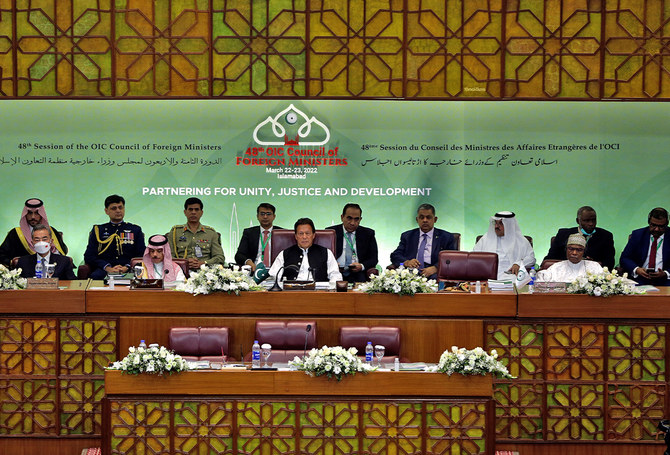
THE Islamabad Declaration adopted at the conclusion of the OIC’s Council of Foreign Ministers appears to be a comprehensive document, addressing around 70 points. These cover disputes affecting the Muslim world as well as conflicts in non-Muslim areas, such as the Ukraine-Russia war. Palestine, Kashmir and Afghanistan all feature prominently in the document, as does the plight of the Rohingya and the attempts to counter Islamophobia.
But as always, the key challenge before the multilateral Muslim bloc remains translating these noble aims into achievable goals, and more importantly, overcoming internal divisions.
The declaration reiterated the “centrality of the question of Palestine” while expressing “unwavering solidarity with the people of Jammu and Kashmir” as they seek “their inalienable right to self-determination”. The document also expressed “grave concern” over the incident earlier this month in which an Indian missile violated Pakistani airspace.
With regard to the dire humanitarian situation in Afghanistan, a trust fund has been launched by the OIC to help support the people of that country. Indeed, Afghanistan has been a victim of geopolitical intrigue and superpower politics for the last four decades, which has left its infrastructure in ruins. While it has primarily been non-Muslim powers that have played a central role in Afghanistan’s destruction — though Afghan power players cannot be absolved of blame — the Muslim world has a responsibility to support the Afghan people in their hour of need. Pakistan has been hosting millions of Afghan refugees since the Soviet invasion, and many of the Muslim states with deep pockets can play a bigger role in ensuring that the people of Afghanistan get the financial and humanitarian help they need.
While such meetings have an important role to play where discussion of the Muslim world’s problems is concerned, there has long been legitimate criticism of the OIC’s lack of delivery and unity. True, OIC declarations are well-meaning and give the appearance of a united voice emerging from the Muslim bloc, but the reality is more sobering.
For example, at around the same time that officials waxed eloquent about the Palestine cause in Islamabad, Egyptian President Abdel Fattah al-Sisi was hosting the Israeli prime minister and the UAE’s top royal in his country. Moreover, a number of Muslim states have taken the lead in establishing ties with Israel at the expense of the Palestinians. Also, while the Islamabad Declaration contains solemn pledges to support the oppressed people of Kashmir, in reality very little is done by the majority of Muslim states to help end the subjugation of Kashmir. For instance, the UAE has sought to make investments in the disputed region, to the benefit of New Delhi. These discrepancies between the OIC member states’ words and actions need to be addressed if the multilateral body is to become an effective voice for the Muslim world and not merely a talk shop that issues verbose statements.
Published in Dawn, March 25th, 2022


